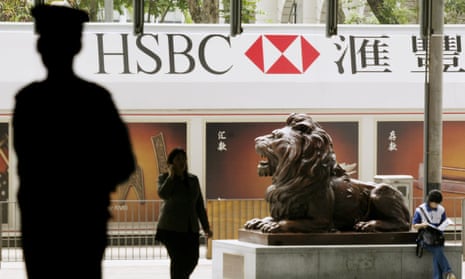HSBC has been dancing around the domicile handbag for about a decade. It used to run a review every three years. Then, in 2012, it postponed the question indefinitely, arguing that too many other things were happening – like regulators’ evolving plans to ensure the next banking crisis does not have the damaging consequences of the 2007-2009 catastrophe.
Now HSBC has waltzed back onto the dancefloor. “We are beginning to see the final shape of regulation and of structural reform,” says chairman Douglas Flint. So yet another review has been ordered to answer this “complex” question.
Is it really that complex? One point is very simple. Even in the new regulatory environment of fatter capital cushions, big banks need to be domiciled in big countries. If not, investors will worry that the home state can’t fund a bailout in a crisis. Bondholders would then demand a higher price to lend. Iceland was bust by its banks. Royal Bank of Scotland would have done much the same to an independent Scotland.
In HSBC’s case, there are only two possible homes, other than the UK – the US or China/Hong Kong. The US is surely a non-starter. HSBC operates there under a deferred prosecution agreement, a result of its money-laundering for Mexican and Colombian drug cartels, for which it was fined $1.9n in 2012. It’s hard to believe HSBC would wish to be American.
That leaves China/Hong Kong, which is where the bank’s roots lie. The Hong Kong & Shanghai Banking Corporation moved to the UK in 1992 with its purchase of Midland Bank. The UK authorities demanded the redomicile but it was also seen as a smart piece of planning since Hong Kong was being handed back to China in 1999 with unknown consequences.
So why is UK suddenly seen as less attractive? Flint’s mention of “the shape of regulation” is partly code for the bank levy, introduced by chancellor George Osborne. This is calculated on a UK-domiciled bank’s global assets – not just those in this country – so an international operator gets hit disproportionately.
All the main political parties are committed to the levy (and Labour is arguing for an increase) and analysts at Investec reckon HSBC’s charge could rise from $1.1bn (£660m) in 2014 to $1.6bn in 2015 as a result of an increase in the budget in March. If HSBC was based in Hong Kong or Shanghai – and thus only its UK business was eligible for the levy – the bank would escape about two thirds of the charge.
Flint also mentioned the UK’s new ring-fencing rules today. These require a separation of the UK bank and dedicated capital cushions. HSBC’s thought might be this: we are reorganising our UK business anyway and moving it from London to Birmingham, so why not go the full hog and shift the headquarters of the rest of the bank?
The problem is this. The mists, as Flint calls them, are clearing around regulation but HSBC would he heading into a thick smog if went eastwards. In the UK, banks are regulated by a body accountable to a democratically elected parliament in a country that operates an open system of justice. Hong Kong may still love its financiers and tycoons but the UK’s former colony comes under the increasingly watchful gaze of the Chinese Communist party.
Could HSBC – or anybody – really know how the Hong Kong political landscape will look 20 years from now? That, at a minimum, is the horizon Flint & co should be considering.
No doubt there will be a strong lobby within HSBC arguing the case for Hong Kong or China. Most of the group’s profits are made in Asia, and the locals feel HSBC never really left, spiritually speaking. But the costs and upheaval of such a move would be enormous. HSBC is vastly bigger than it was in 1992 and regulators’ demands have multiplied.
But the basic problem is straightforward: China and Hong Kong might look pretty today, but HSBC would risk making itself a slave to an undemocratic regime in Beijing.
The idea seems mad.

Comments (…)
Sign in or create your Guardian account to join the discussion